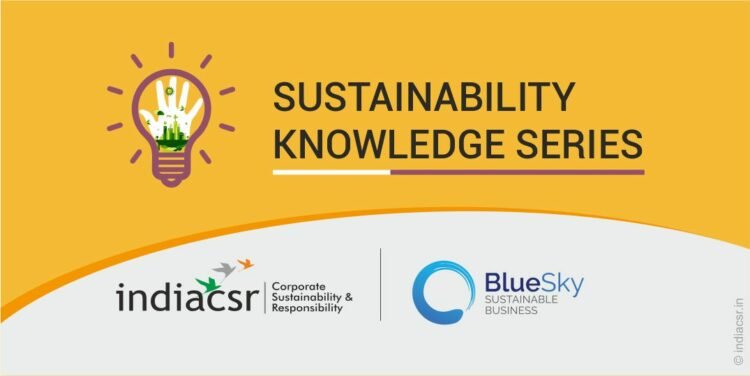Do the terms “Sustainable”“Sustainability” and“Sustainable Development” create confusion. Do terms like “Social responsibility”, “Corporate Social Responsibility” add on to the confusion?
You know you are not the only one. This article maps out the definitions used in the Indian legal and compliance context and mainly refers to National Guidelines for Responsible Business Conduct (NGRBC2018) Ministry of Corporate Affairs & ISO 26000:2010 Guidance on Social Responsibility.
Definition of Sustainable
Capable of being supported or upheld. Pertaining to system that holds its own viability by using techniques that allows for continual reuse. (dictionary.com)
Being aligned with the tenet of meeting the needs of the present without compromising the ability of future generations to meet their own needs(National Guidelines for Responsible Business Conduct, 2018)
Example of usage: “Sustainable agriculture” refers to agriculture which can be sustained(viable).
Similarly,“sustainable resource”use e.g.sustainable usage of cotton as a raw material for manufacturing garments refers to a pace of resource use (cotton) which is sustained and viable.
Definition of Sustainability
the ability to be maintained at a certain rate or level: oxford dictionary(oxford.com)
The outcome achieved by balancing the social, environmental and economic impacts of business. It is the process that ensures that business goals are pursued without compromising any of the three elements.(National Guidelines for Responsible Business Conduct, 2018)
Example of usage: the sustainability (ability to maintain a rate of growth) of economic growth
Sustainability reporting – reporting on the rate or level the outcomes of the business decision.
Definition of Sustainable Development.
Brundtland Commission. (1987) Gro Harlem Brundtland was the former Prime Minister of Norway. The Brundtland Commission released Our Common Future, also known as the Brundtland Report, The document popularized and definedthe term “Sustainable Development“.
Definition of Sustainable Development
“Sustainable development is development that meets the needs of the present without compromising the ability of future generations to meet their own needs
This definition emerged mainly from environmental concerns and even now, in 2020, you will find many instances where sustainability reporting is all about environment.
Table 1: Key Subject areas for Sustainability reporting (India vs. OECD countries)
| India | OECD Countries |
| Waste | Accountability |
| Emissions/Pollutions | Emissions/Pollution |
| Water | Climate Change |
| Energy | Waste |
| Resources | Employment Conditions, policies and practices |
With the introduction of ISO 26000 in 2010 , the concept of Sustainable Development has shifted its focus to include economic development, social development and environmental protection for future generations. These social, economic andenvironmental goals are interdependent and mutually reinforcing. For example, we cannot address the issue of Ganges river pollution without involving the communities who influence the industries e.g. sewage treatment and ETP of tanneries.
Sustainable Development Goals :
SDGs were introduced in 2015 and are a set of aspirational goals to end poverty (social impact), protect the planet ( environmental impact ) and ensure prosperity for all(economic impact ) 193 countries have pledged their support towards the 17 United Nations Sustainable Development Goals (UN SDGs) and their 169 targets.
This article is a part of “Sustainability Knowledge Series” produced by BlueSky Sustainable Business and India CSR























